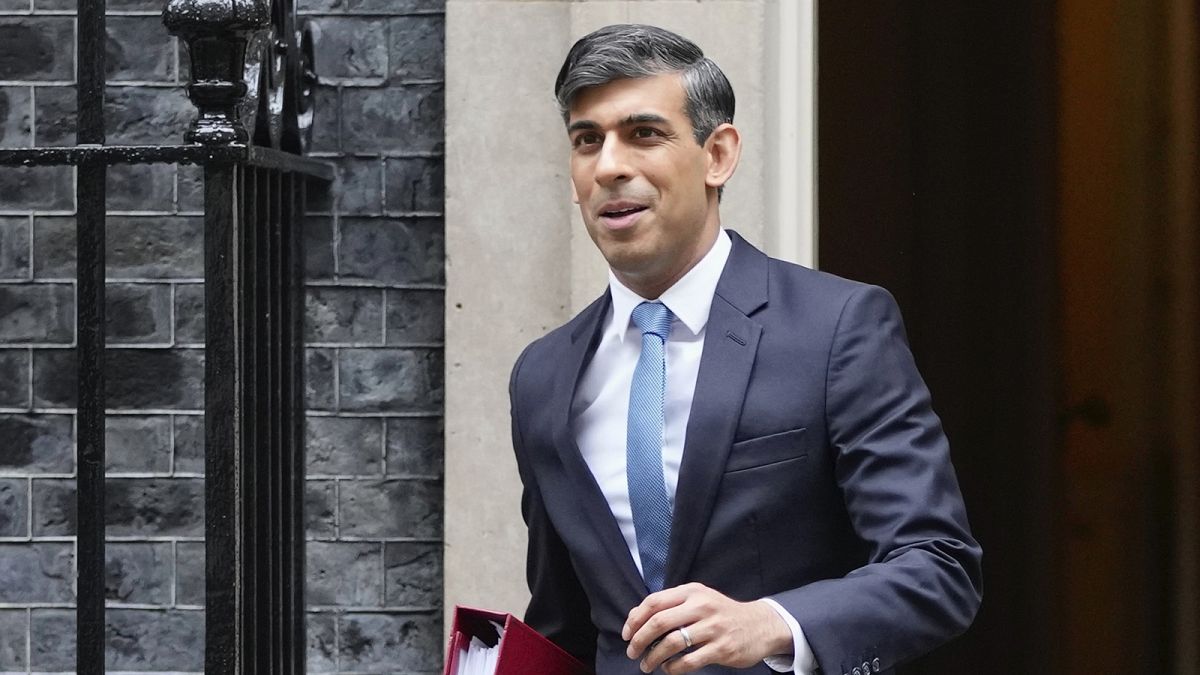The UK Prime Minister Rishi Sunak has confirmed that a national election will be held on 4 July in a surprise announcement made outside Downing Street. The announcement came after much speculation following Sunak’s decision to push a Cabinet meeting to Wednesday afternoon instead of the usual Tuesday time. In his speech, Sunak referenced the British economy and his government’s ability to govern, highlighting the recent sharp decline in inflation to 2.3%. Sunak stressed the importance of economic stability and assured the public that his government has a clear plan ahead, despite acknowledging the challenges faced by the British public. The announcement was made amidst pouring rain and the background sound of New Labour’s 1997 election anthem, adding to the drama of the moment.
The centre-left Labour Party led by Keir Starmer is currently favored to win the upcoming election, as Sunak’s Tory party has seen support dwindle after fourteen years in power. The Tories have faced various scandals, including an economic downturn and a revolving door of leaders. In the upcoming national election, voters across the UK will choose 650 members for the House of Commons. The party with the majority in the Commons will form the next government, with its leader becoming the prime minister. The next government’s term will last up to five years, setting the stage for potentially significant changes in the country’s leadership and policies.
The confirmation of the national election on 4 July marks a pivotal moment in British politics, as the country grapples with economic challenges and public discontent. Sunak’s decision to call for an election amidst a backdrop of declining inflation and political uncertainty underscores the urgency of addressing key issues facing the UK. The upcoming election will provide voters with an opportunity to voice their opinions and potentially reshape the country’s leadership for the next five years.
The announcement of the national election on 4 July comes at a critical time for the UK, with the economy facing challenges and political divisions deepening. Sunak’s emphasis on economic stability and his government’s plans for the future indicate a commitment to addressing key issues facing the country. The upcoming election will be closely watched as the Labour Party seeks to capitalize on the Tories’ declining support and potential fatigue with their long-standing rule. The outcome of the election could have significant implications for the UK’s future direction and political landscape.
As the UK prepares for the national election on 4 July, the stage is set for a closely contested race with high stakes for both the Tories and Labour. Sunak’s announcement has set the tone for a campaign focused on economic stability, government effectiveness, and the future direction of the country. The upcoming election will play a crucial role in shaping the UK’s political landscape for the next five years, with voters across the country set to make their voices heard on key issues impacting their lives. The outcome of the election is expected to have far-reaching consequences for the UK’s future development and governance.
In conclusion, the confirmation of the national election on 4 July by UK Prime Minister Rishi Sunak has set the stage for a pivotal moment in British politics. With economic challenges, political uncertainty, and public discontent shaping the backdrop, the upcoming election will provide voters with an opportunity to voice their opinions and potentially reshape the country’s leadership for the next five years. The Labour Party’s favorability, the Tories’ declining support, and the competing visions for the future of the UK all highlight the significance of the upcoming election. As the country prepares for this critical event, the stakes are high, and the outcome will have lasting implications for the UK’s political landscape and governance.










